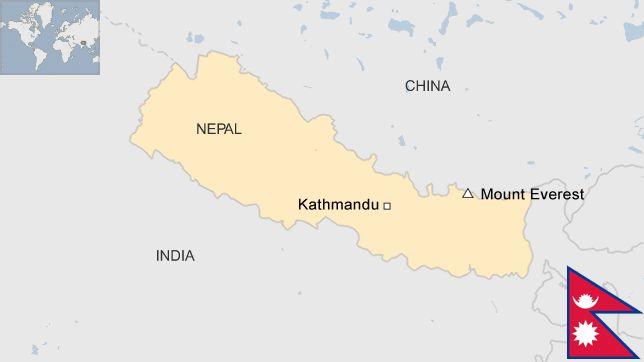Nepal enters crisis mode as constitution talks fail
- Published
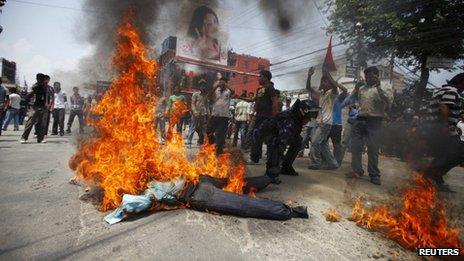
The prime minister's decision has caused outrage among some political parties
The failure of politicians in Nepal to agree a constitution prompting the prime minister to call fresh elections is the biggest setback for the country's fledgling peace process since the decade-old Maoist insurgency ended in 2006.
The two developments on Sunday have dashed the hopes of millions of Nepalis who elected the assembly in 2008 to write Nepal's first democratic and inclusive constitution.
While the prospects of Maoist-led conflict returning to Nepal is slim - given that many former rebels have either been discharged or integrated with the army - it is not impossible that the country could slide into communal violence.
Fears of such a development are increasing because of the growing mistrust between different groups as to whether states in a new federal system should be formed along ethnic lines.
This is the key reason why parties failed deliver a constitution on Sunday and allowed yet another deadline to finalise a deal to lapse.
'Legal nightmare'
Matters are likely to be made more complicated because the announcement by Prime Minister Baburam Bhattarai to hold elections on 22 November also seem to have further polarised Nepal's various political parties.
The interim constitution has no provision for fresh elections. In such a situation, political consensus among all parties would be crucial. With no elected body, it will be a legal nightmare to draft laws necessary for holding elections.
Opposition parties have accused the prime minister of ignoring their advice to extend the life of the constituent assembly as an interim parliament.
They argue that this could have been done through a constitutional amendment rather than rushing to announce polls without ascertaining any legal and constitutional basis for doing so.
Five parties, including the second and third largest party Nepali Congress and CPN-UML, have already petitioned Nepal's President Ram Baran Yadav to challenge the prime minister's decision.
With the dissolution of the constituent assembly, the opposition parties are insisting that the prime minister has automatically lost his job. They are calling for a new political arrangement based on consensus among political parties.
It is not immediately clear if the opposition parties would boycott the polls if they are held.
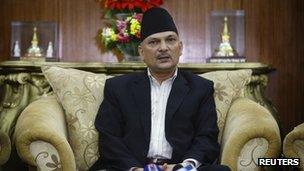
The prime minister said he regretted the failure to complete a new constitution
"The prime minister's decision has unravelled the whole consensus process that had driven Nepal's peace process so far," says Bhim Rawal, a leader of the third largest party, Communist Party of Nepal - Unified Marxist Leninist (CPN-UML), and also a key negotiator. "At this stage, I can't tell you what the way forward is."
But the prime minister's chief political advisor, Devendra Poudel, accused the opposition of opposing the election move for publicity's sake. He argues that they will eventually take part in polls.
Mr Poudel also argues that a ruling by the the Supreme Court in November not only banned a further extension of the constituent assembly but also opened the doors for fresh elections.
The row is likely to lead to a power struggle between the prime minister and president, who despite being a ceremonial head of the state has some emergency powers in the interim constitution of Nepal.
Sour communal relations?
Yet amid all the acrimony it seems that on Sunday afternoon the two sides were tantalisingly close to agreeing a new constitution by the midnight deadline. It was only the continuing disagreement over how to divide Nepal into federal provinces which derailed a potential deal.
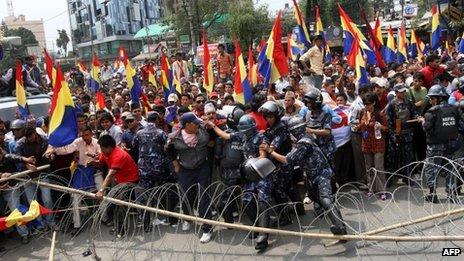
Many believe that the demands of royalists for the monarchy to be restored are unlikely
The Maoists - who lead a 15-party coalition government with lawmakers from smaller parties representing many different ethnic groups - have been demanding that provinces be created and named in a way that reflects the majority ethnic groups in the area.
But the two main opposition parties, the CPN-UML and the Nepali Congress, insist that ethnic federalism will sour communal relations and sow the seeds of disintegration.
As it became clear on Sunday evening that no deal on the constitution had been reached, Maoists and non-Maoist parties blamed each other for the failure.
At the same time there is growing scepticism among the public over the ability and political will of Nepal's political leaders.
Many people are not confident that the parties will deliver a new constitution even if fresh elections are held.
Royalist moves
This has even led to speculation that the dethroned king Gyanendra could exploit growing public disenchantment with Nepal's political class.
It is perhaps no coincidence that a royal family website was launched at around the same time as the demise of the constituent assembly that overthrew the monarchy.
There have been unconfirmed reports in recent weeks that the associates of the former king have been reaching out to political parties to form an alliance.
But many do not think a reinstatement of the monarchy is possible.
Analysts are hopeful that despite the latest setback, party leaders will eventually form a consensus and take the political process forward.
But the risk remains that without a new constitution, Nepal faces the risk of renewed violence and protracted political instability.
- Published28 May 2012
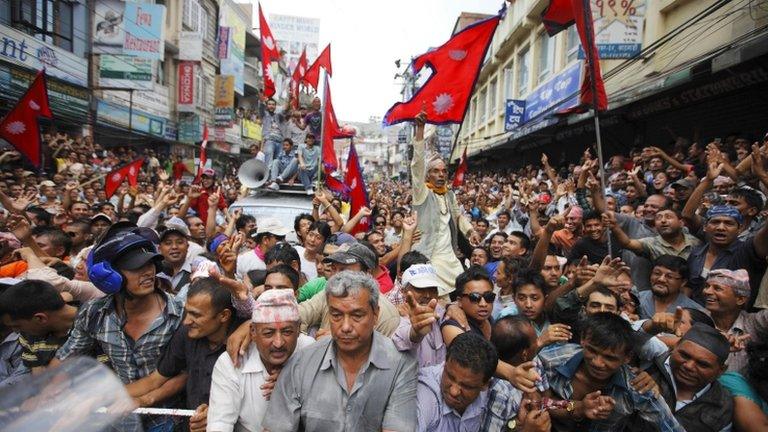
- Published24 May 2012
- Published15 July 2024
